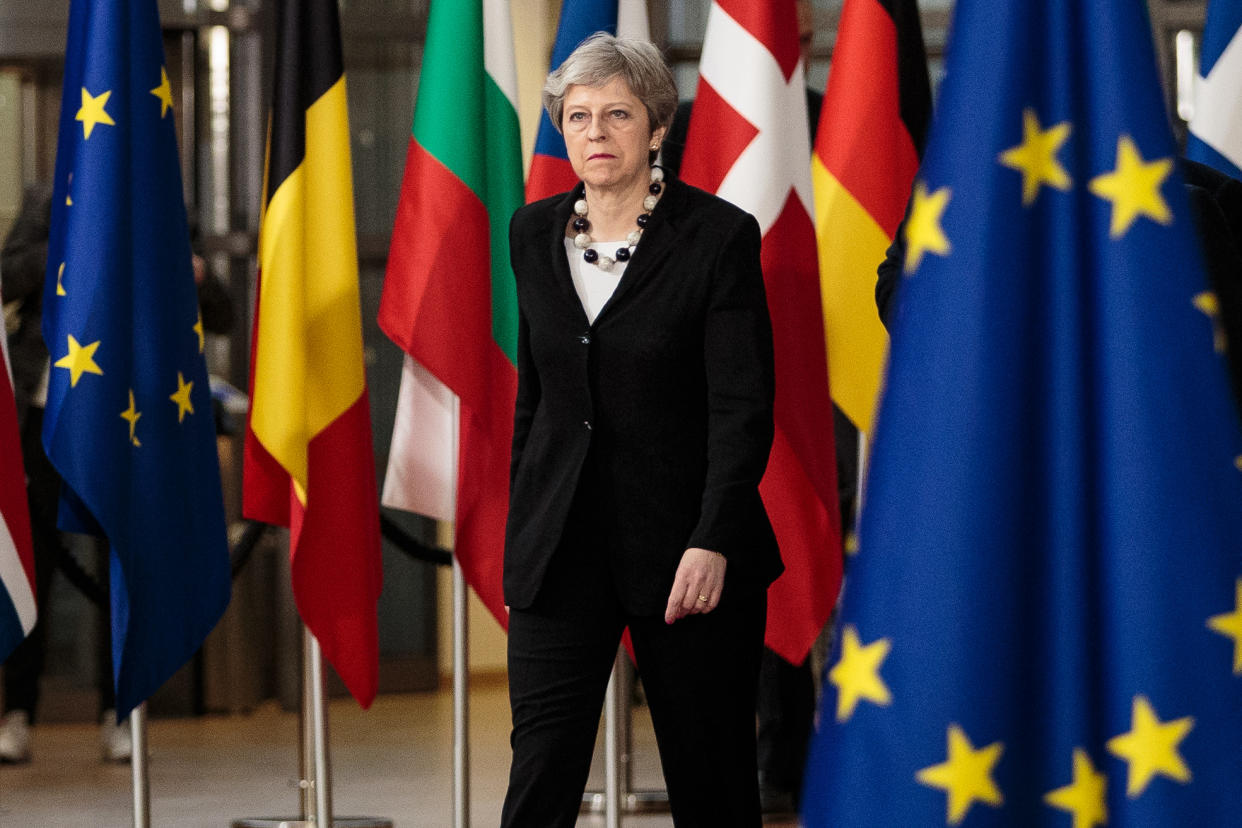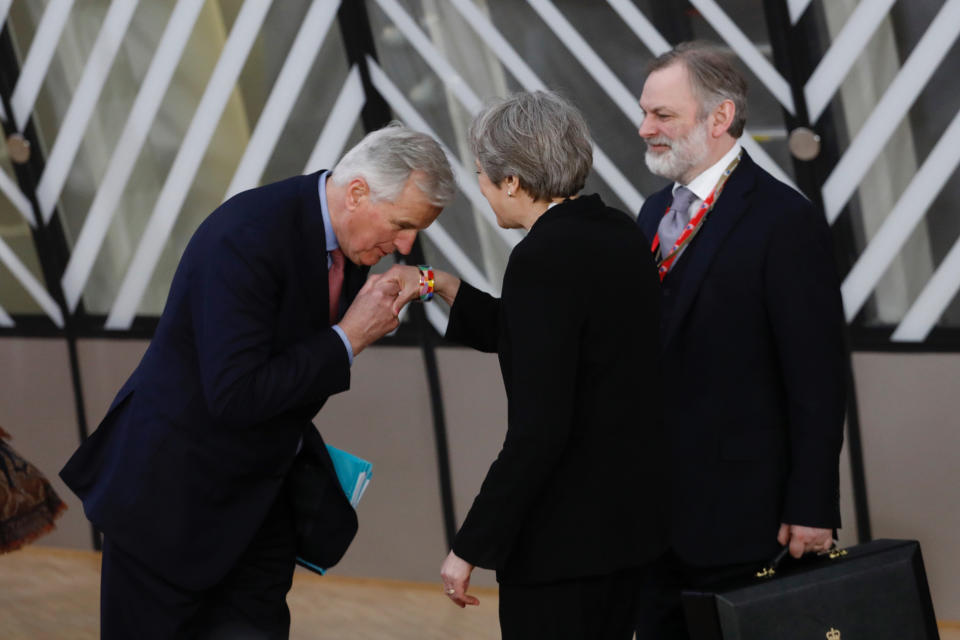May hails "new dynamic" in Brexit negotiations as EU agrees to talk trade

Theresa May has hailed a “new dynamic” in Brexit negotiations after European leaders agreed to move forward to the next stage.
The European Council has today agreed a deal on the transition period as well as their negotiating guidelines for the next round of talks.
It means the UK and EU can now begin discussing the future of trade and security cooperation.
Prime Minister Theresa May welcomed the development as she arrived at the second day of the summit in Brussels, saying it would give “certainly to people and business.”
She added: “I believe there’s a new dynamic now in the negotiations. I believe we’re approaching this in the spirit of cooperation and the spirit of opportunity as well.
“We will now be sitting down and determining those workable solutions for Nothern Ireland but also for our future security partnership and economic partnership and I believe this is in the best interests of the UK and the EU.”
EU Council president Donald Tusk said: “We want to use the positive momentum in negotiations to finally settle outstanding issues such as the solution to avoiding a hard border between Ireland and Northern Ireland.”
But EU leaders privately expressed concern during the summit that a trade deal with the UK could be made more difficult by parallel negotiations between the UK and US.
It is feared that the UK may lower standards in order to reach a deal with the US in a way that would be unacceptable to the EU.

The European Council, which is made up of the leaders of the 28 EU member states, simply rubber stamped the transition arrangements unveiled on Monday by Mr Barnier and Brexit Secretary David Davis.
Both sides made concessions. The EU allowed Britain to begin signing its own trade deals during the transition period.
The UK agreed that EU citizens arriving during the transition period would have the same rights as those that arrived before and that the UK would remain in the Common Fisheries Policy until the end of the transition.
The European Council also formally adopted a seven page document setting out the EU 27’s guidelines for the next round of Brexit negotiations – in less than half a minute, according to European Commission president Jean-Claude Juncker.
The document sets up the next round of the row that’s broken out over fishing rights.
The EU’s guidelines say that “existing reciprocal access to fishing waters and resources should be maintained” as part of a free trade agreement with the UK.
The British fishing industry want the UK to have sole control of its waters after the transition.
UKIP MEP Nigel Farage was among those who threw dead fish into the Thames on Wednesday as part of a protest against access to UK waters for European fishing vessels.
And today he said: “Unless the British Government makes it clear now that this is unacceptable we will head into trade talks with the sell-out of our fisheries already accepted.”
Businesses on both sides of the channel welcomed the certainty provided by the agreement on the transition period.
But Liberal Democrat MEP Catherine Bearder said the transition was just “putting off the inevitable.”
“For me it’s like do we jump off a cliff at the end of March or do we walk the plank a little bit longer,” she said. “Eventually we’re going to fall off.”
How to resolve the border between Northern Ireland and the Republic of Ireland if the UK leaves the EU’s customs union remains the biggest unsolved issue in negotiations.
Irish Taoiseach Leo Varadkar said he wanted to see an agreement that “keeps the United Kingdom as close to the European Union” as possible in order to avoid a hard border and protect trade.
And he stressed negotiations should not be seen as “some sort of conflict between the UK and Ireland.”

 Yahoo News
Yahoo News 
